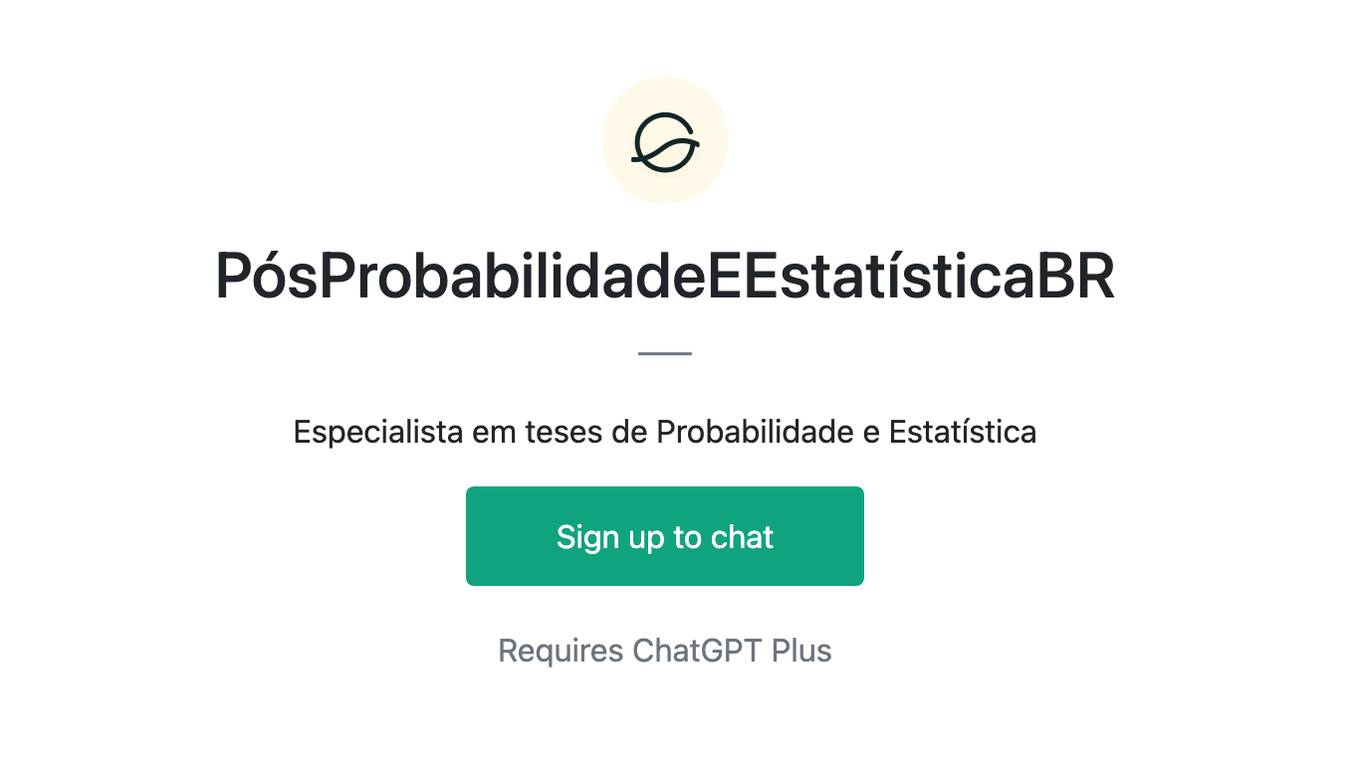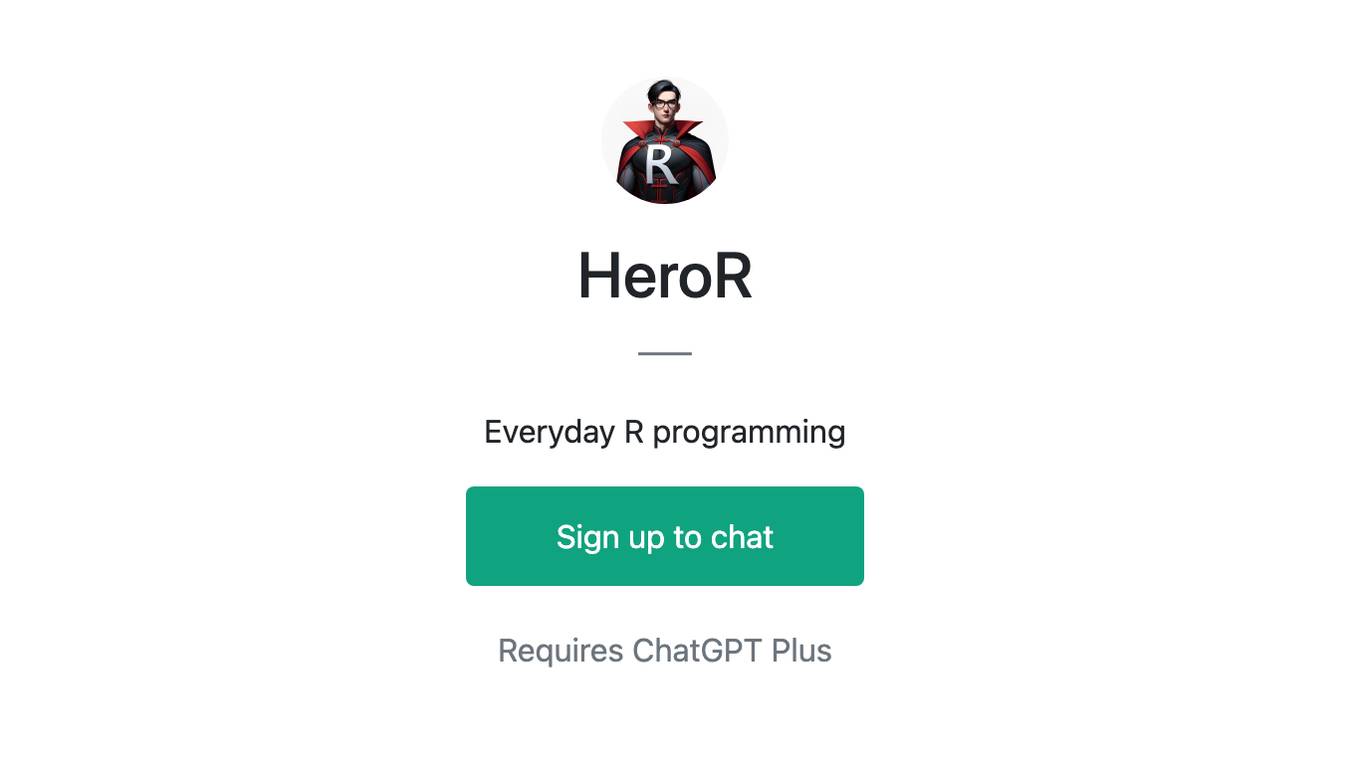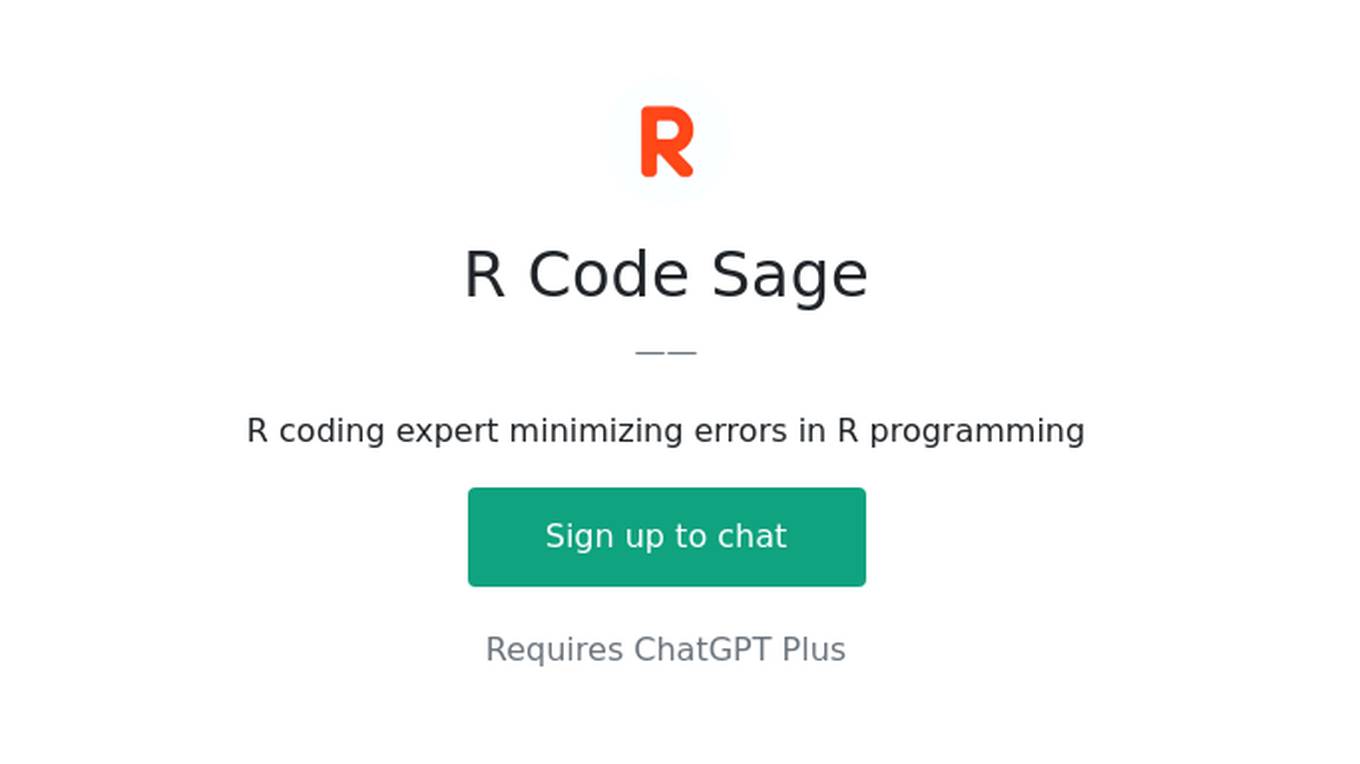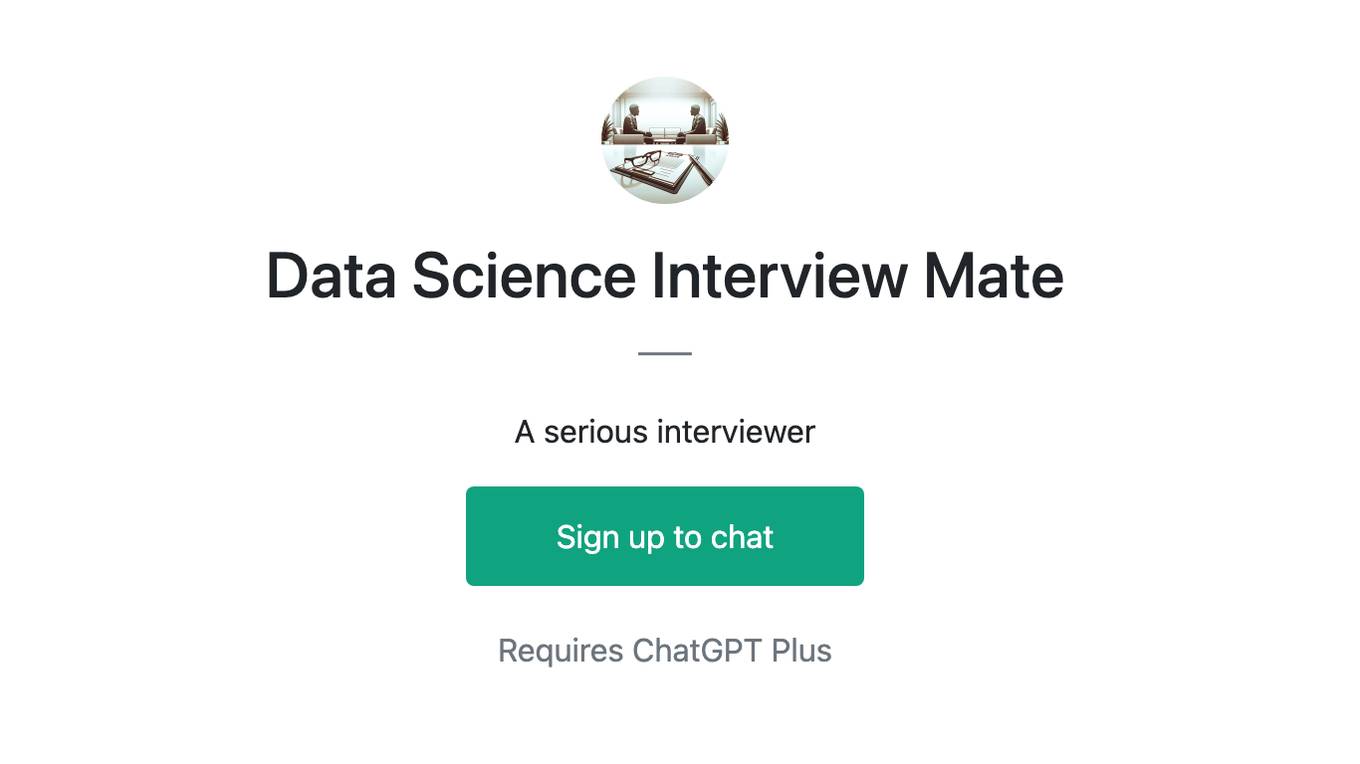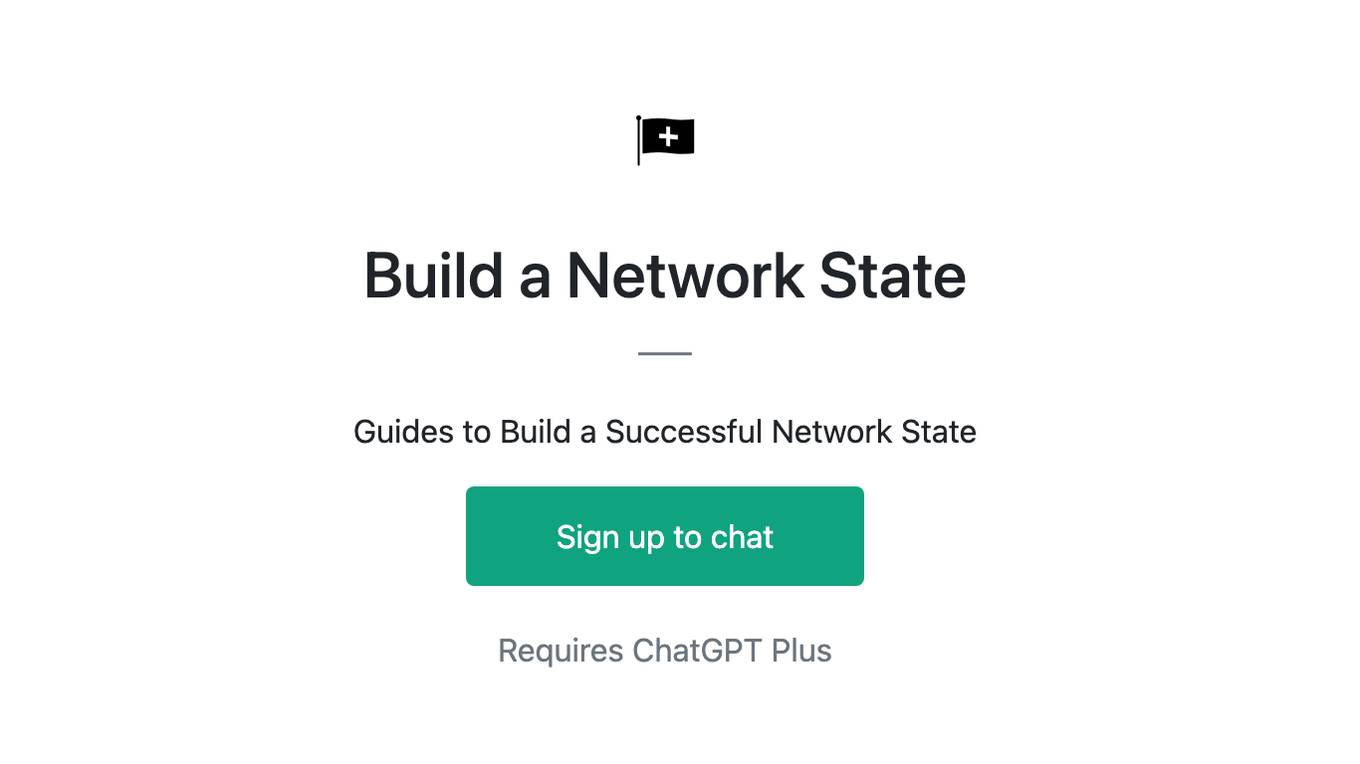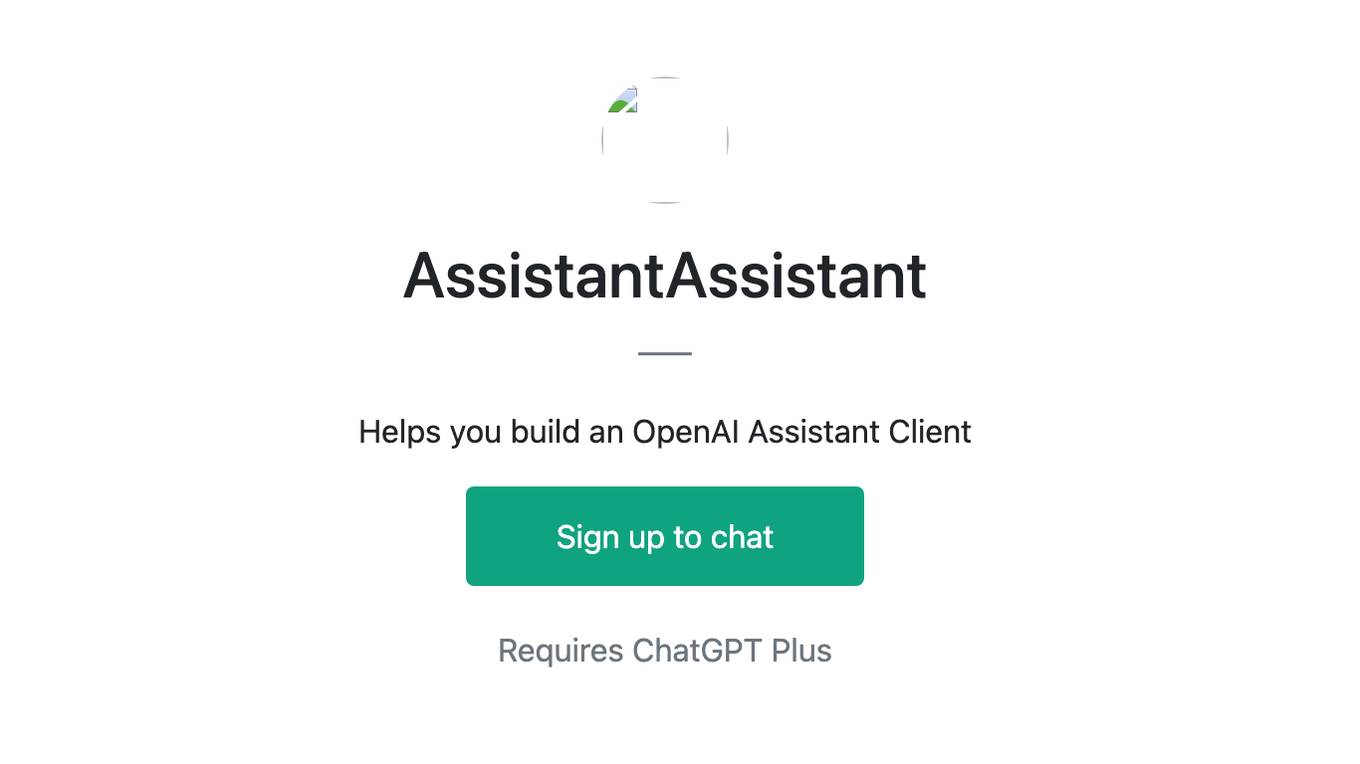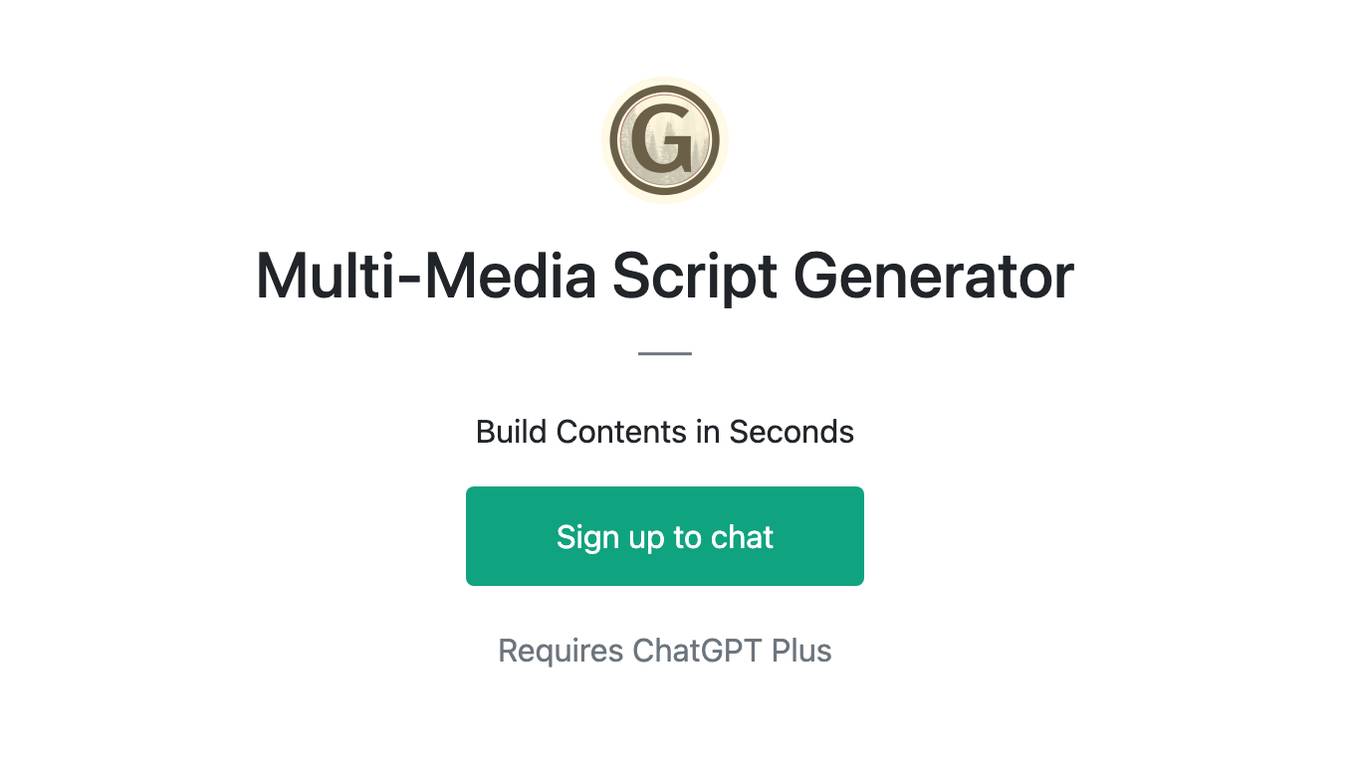Best AI tools for< Build Statistical Models >
20 - AI tool Sites
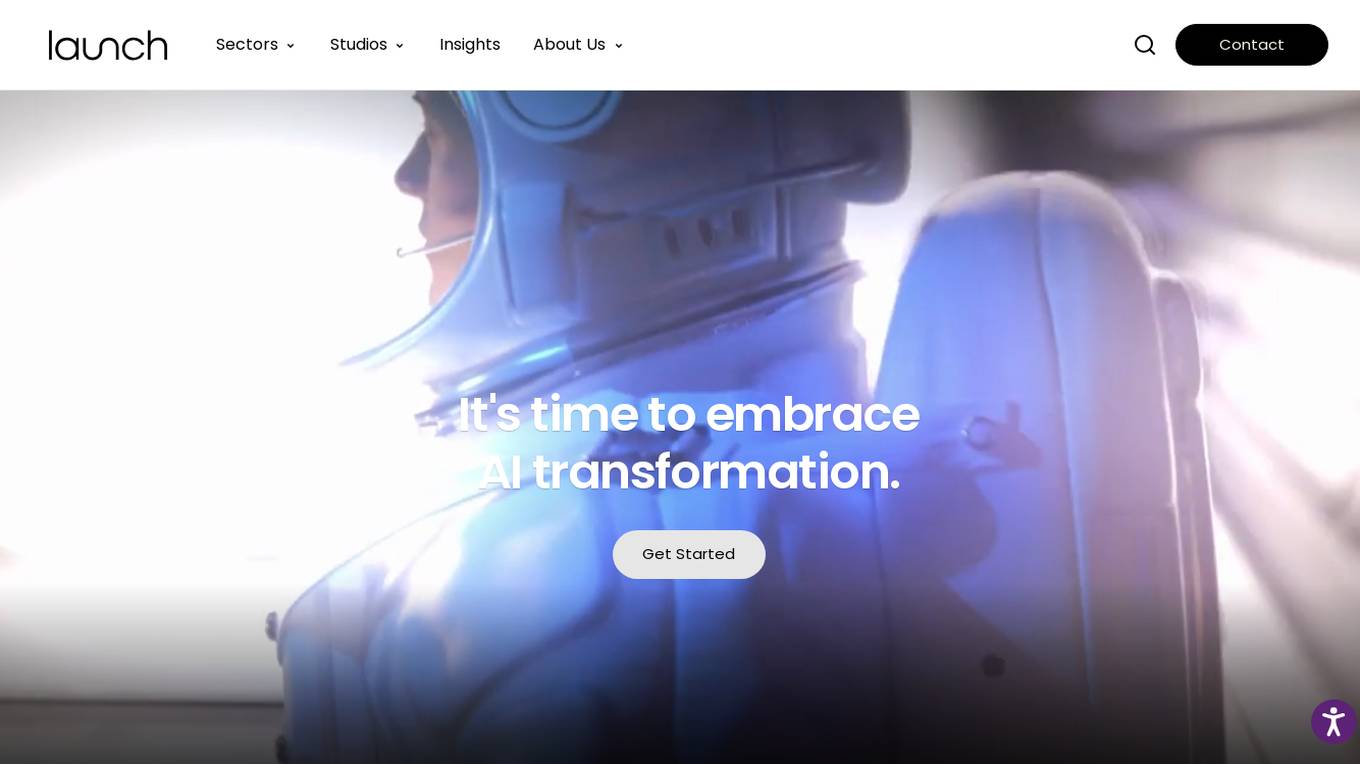
Launch Consulting Group
Launch Consulting Group is an AI and digital transformation consulting firm that empowers organizations to embrace AI transformation. They offer services such as AI guidance, predictive analytics, data architecture, and data governance to help businesses make smarter decisions, streamline workflows, and optimize performance. With a team of over 1200 Navigators worldwide, Launch Consulting Group is dedicated to helping businesses across various sectors leverage the power of artificial intelligence for success.

Julius AI
Julius AI is an advanced AI data analyst tool that allows users to analyze data with computational AI, chat with files to get expert-level insights, create sleek data visualizations, perform modeling and predictive forecasting, solve math, physics, and chemistry problems, generate polished analyses and summaries, save time by automating data work, and unlock statistical modeling without complexity. It offers features like generating visualizations, asking data questions, effortless cleaning, instant data export, creating animations, and supercharging data analysis. Julius AI is loved by over 1,200,000 users worldwide and is designed to help knowledge workers make the most out of their data.
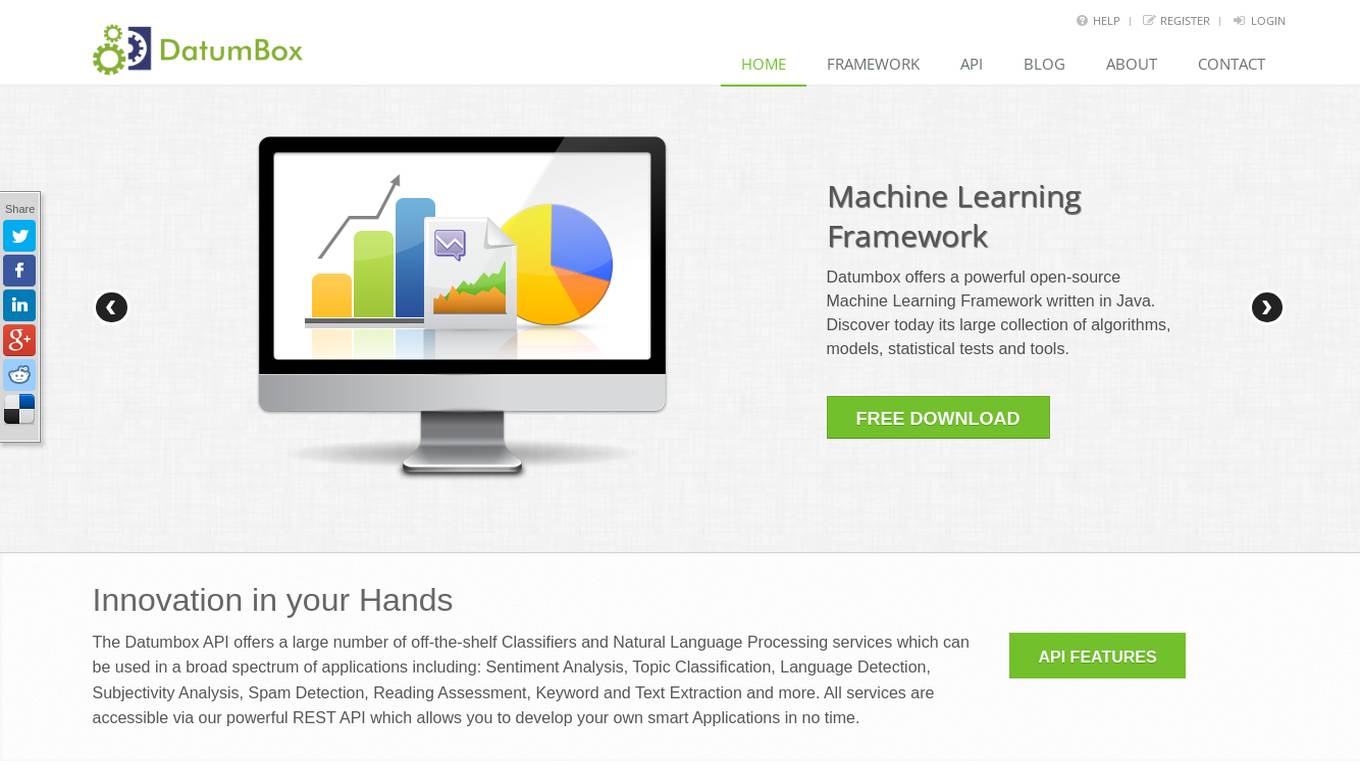
Datumbox
Datumbox is a machine learning platform that offers a powerful open-source Machine Learning Framework written in Java. It provides a large collection of algorithms, models, statistical tests, and tools to power up intelligent applications. The platform enables developers to build smart software and services quickly using its REST Machine Learning API. Datumbox API offers off-the-shelf Classifiers and Natural Language Processing services for applications like Sentiment Analysis, Topic Classification, Language Detection, and more. It simplifies the process of designing and training Machine Learning models, making it easy for developers to create innovative applications.
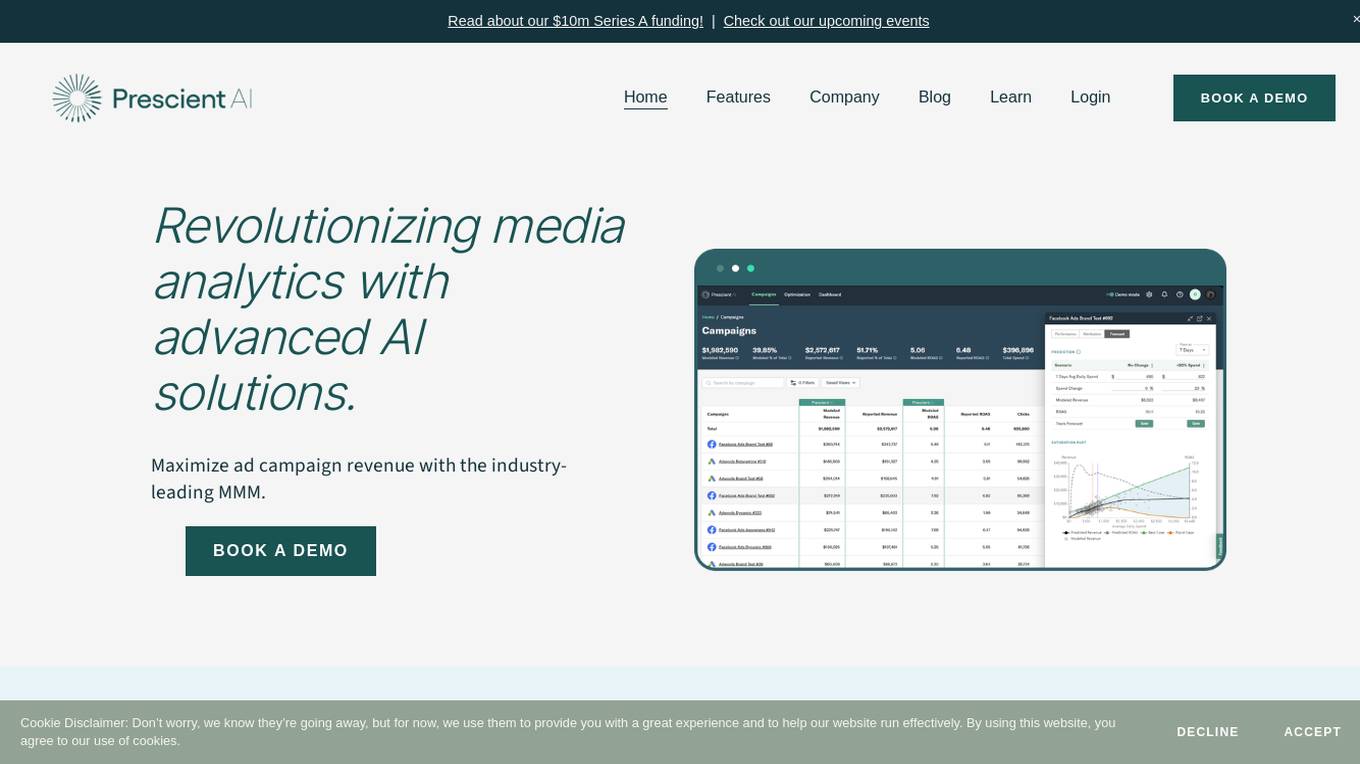
Prescient AI
Prescient AI is a media/marketing mix modeling (MMM) tool that revolutionizes media analytics with advanced AI solutions. It maximizes ad campaign revenue by providing industry-leading MMM insights at channel- and campaign-level. The tool is built on cutting-edge machine learning, AI, and statistical expertise, offering AI-powered simulation for profit optimization. With Prescient AI, users can pinpoint optimal spend for each campaign, achieve the highest possible ROI, and receive critical insights from seasoned experts in just 10 minutes of onboarding.
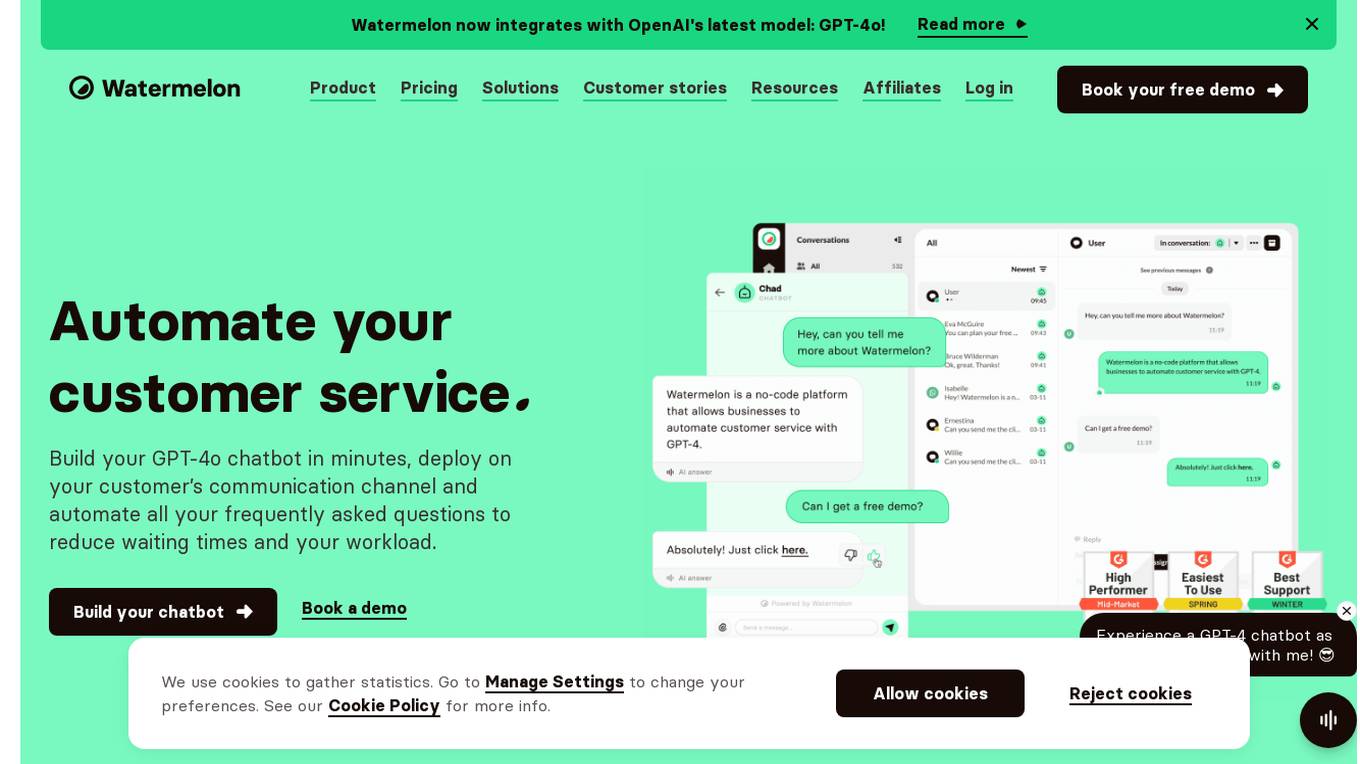
Watermelon
Watermelon is an AI customer service tool that integrates with OpenAI's latest model, GPT-4o. It allows users to build chatbots powered by GPT-4o to automate customer interactions, handle frequently asked questions, and collaborate seamlessly between chatbots and human agents. Watermelon offers features such as chatbot building, customizable chat widgets, statistics tracking, inbox collaboration, and various integrations with APIs and webhooks. The application caters to industries like e-commerce, education, healthcare, and financial services, providing solutions for sales support, lead generation, marketing, HR, and customer service.
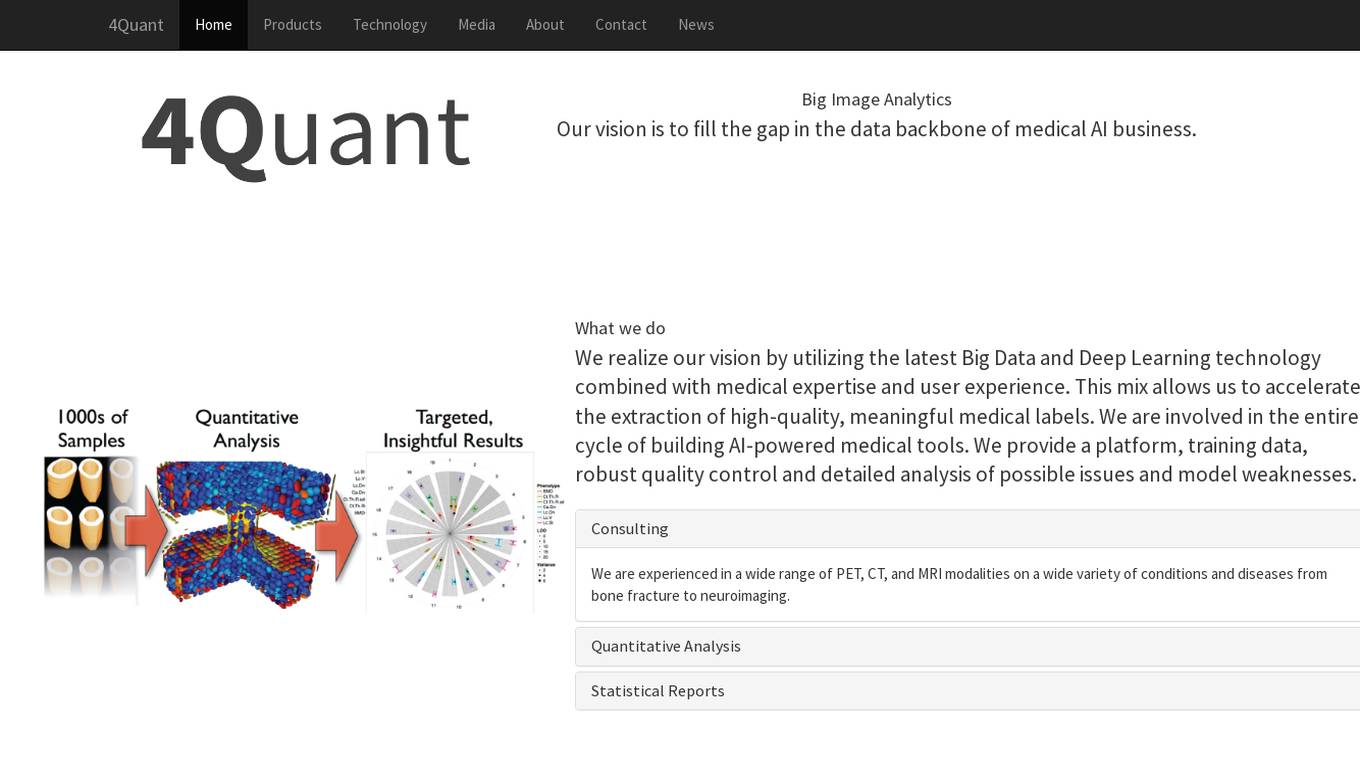
4Quant
4Quant is an AI-powered medical imaging platform that utilizes Big Data and Deep Learning technology to accelerate the extraction of high-quality medical labels. The platform offers a range of tools for image analysis, annotation, and data analytics in the medical field. 4Quant aims to provide scalable solutions for medical imaging analysis, statistical reporting, and personalized training in image analysis. The platform is built on the latest Big Data framework, Apache Spark, and integrates with cloud computing for efficient processing of large datasets.

Eztrackr
Eztrackr is an AI-powered job tracking application that helps job seekers organize their job hunt efficiently. It offers features such as tracking job applications, generating AI-powered answers, matching skills with job descriptions, creating cover letters, and building resumes. With Eztrackr, users can streamline their job search process, gain valuable insights, and save time by managing all job-related tasks in one place.
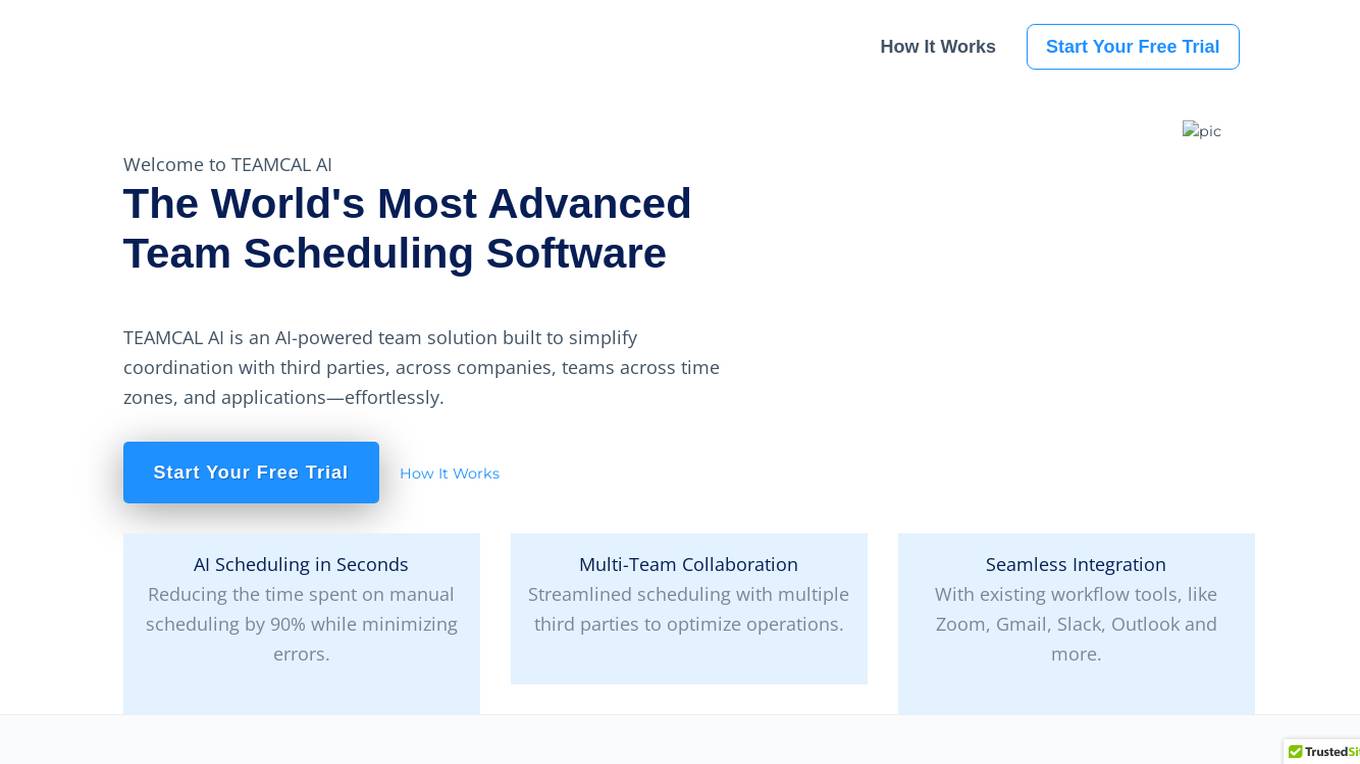
TEAMCAL AI
TEAMCAL AI is the world's most advanced team scheduling software powered by artificial intelligence. It simplifies coordination with third parties, across companies, teams across time zones, and applications effortlessly. The application offers features such as AI scheduling in seconds, multi-team collaboration, seamless integration with existing workflow tools, and more. It is designed to streamline scheduling processes, reduce errors, and optimize operations for businesses of all sizes.
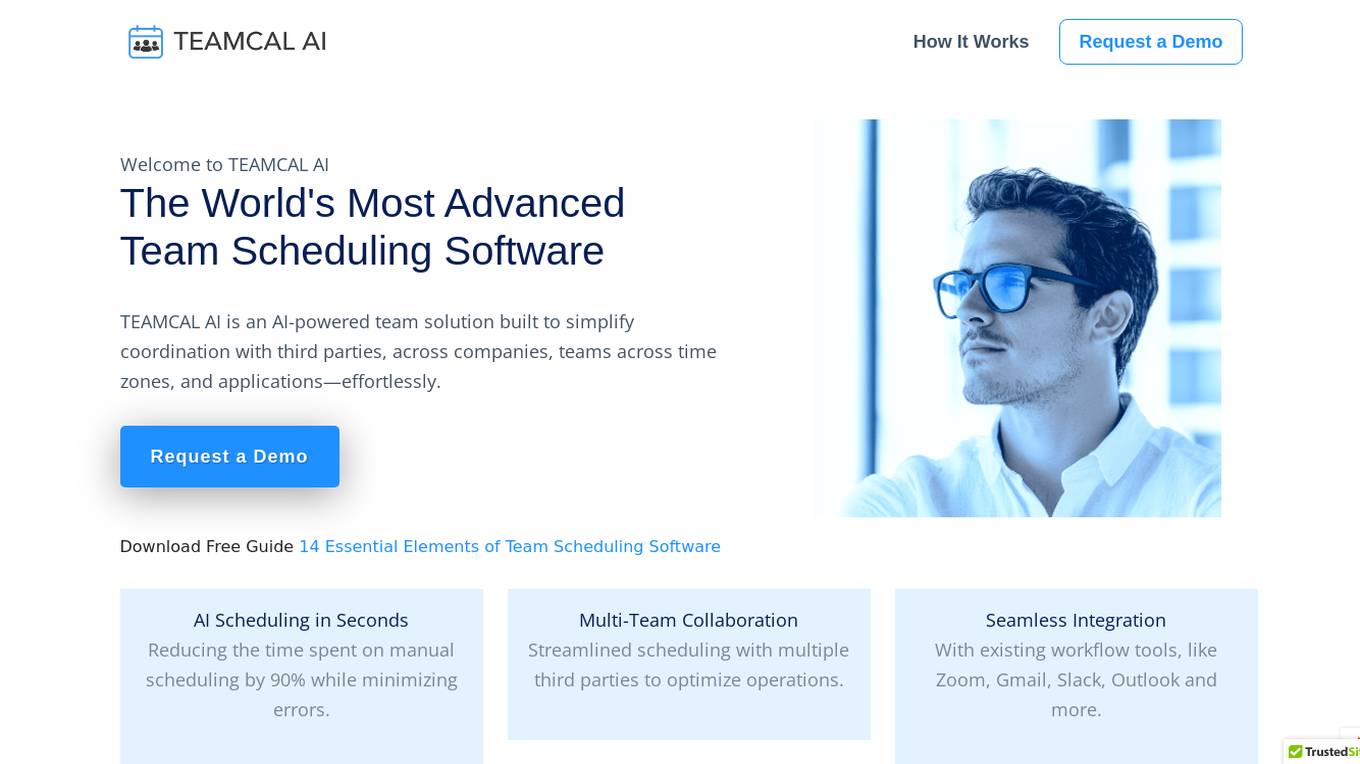
TEAMCAL AI
TEAMCAL AI is the world's most advanced team scheduling software powered by AI. It simplifies coordination with third parties, across companies, teams across time zones, and applications effortlessly. The application offers features like AI scheduling in seconds, multi-team collaboration, seamless integration with existing workflow tools, and integrated solutions designed for specific business use cases. With various pricing plans catering to different business needs, TEAMCAL AI aims to optimize team scheduling, reduce manual errors, and enhance productivity.
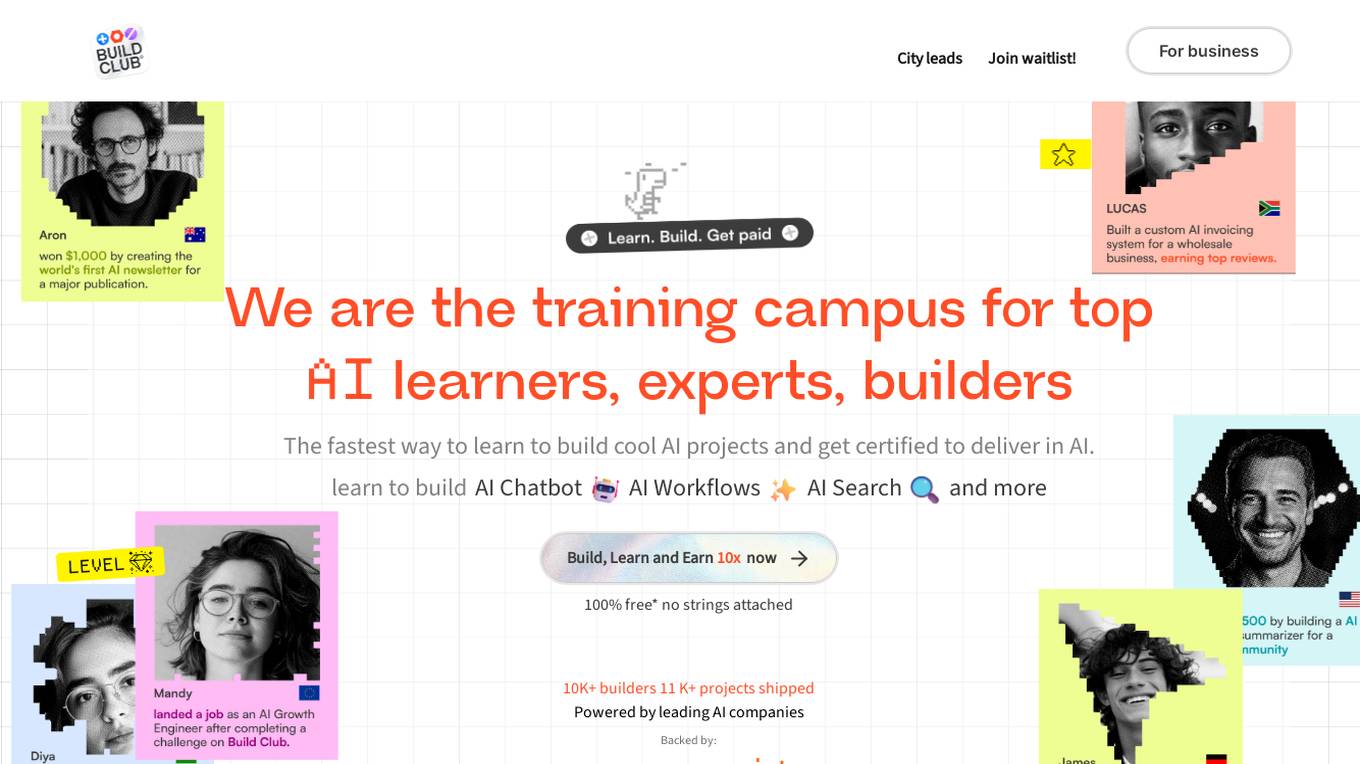
Build Club
Build Club is a leading training campus for AI learners, experts, and builders. It offers a platform where individuals can upskill into AI careers, get certified by top AI companies, learn the latest AI tools, and earn money by solving real problems. The community at Build Club consists of AI learners, engineers, consultants, and founders who collaborate on cutting-edge AI projects. The platform provides challenges, support, and resources to help individuals build AI projects and advance their skills in the field.

Unified DevOps platform to build AI applications
This is a unified DevOps platform to build AI applications. It provides a comprehensive set of tools and services to help developers build, deploy, and manage AI applications. The platform includes a variety of features such as a code editor, a debugger, a profiler, and a deployment manager. It also provides access to a variety of AI services, such as natural language processing, machine learning, and computer vision.
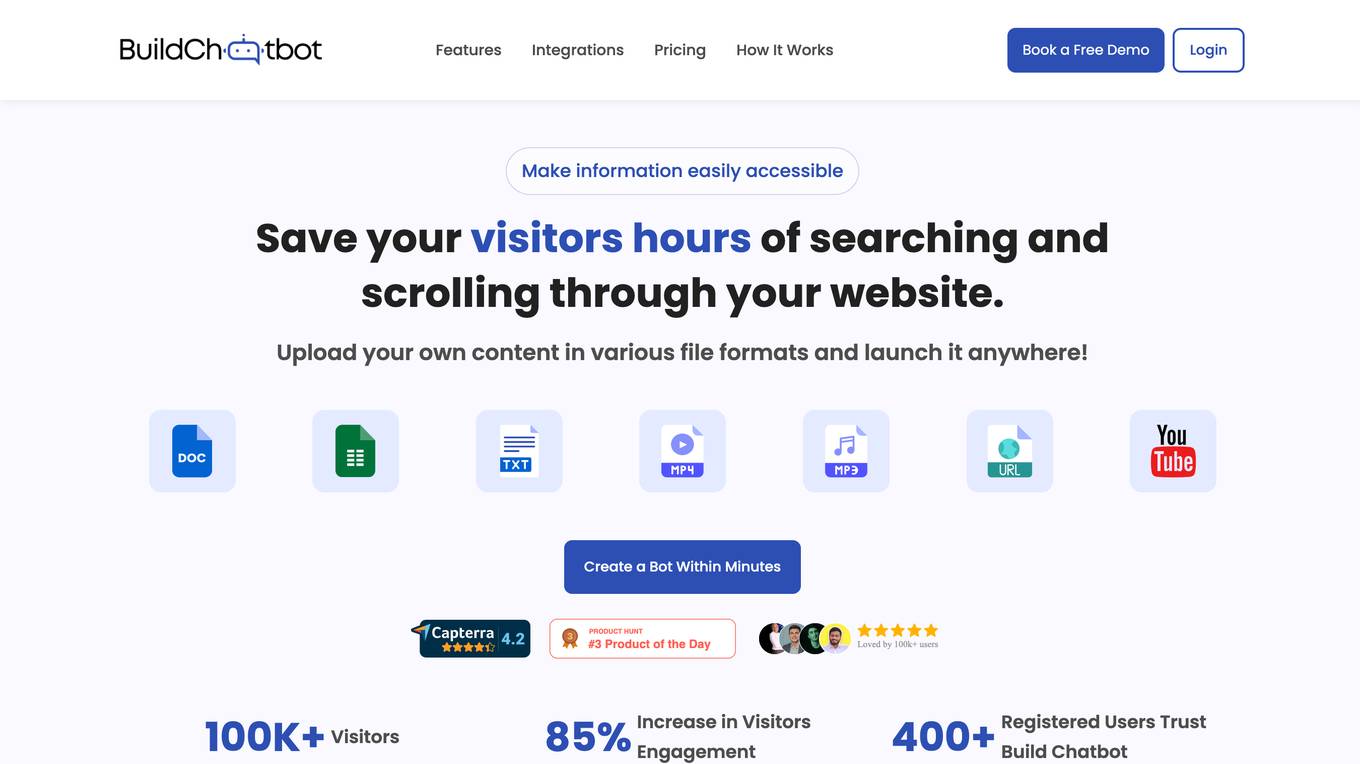
Build Chatbot
Build Chatbot is a no-code chatbot builder designed to simplify the process of creating chatbots. It enables users to build their chatbot without any coding knowledge, auto-train it with personalized content, and get the chatbot ready with an engaging UI. The platform offers various features to enhance user engagement, provide personalized responses, and streamline communication with website visitors. Build Chatbot aims to save time for both businesses and customers by making information easily accessible and transforming visitors into satisfied customers.
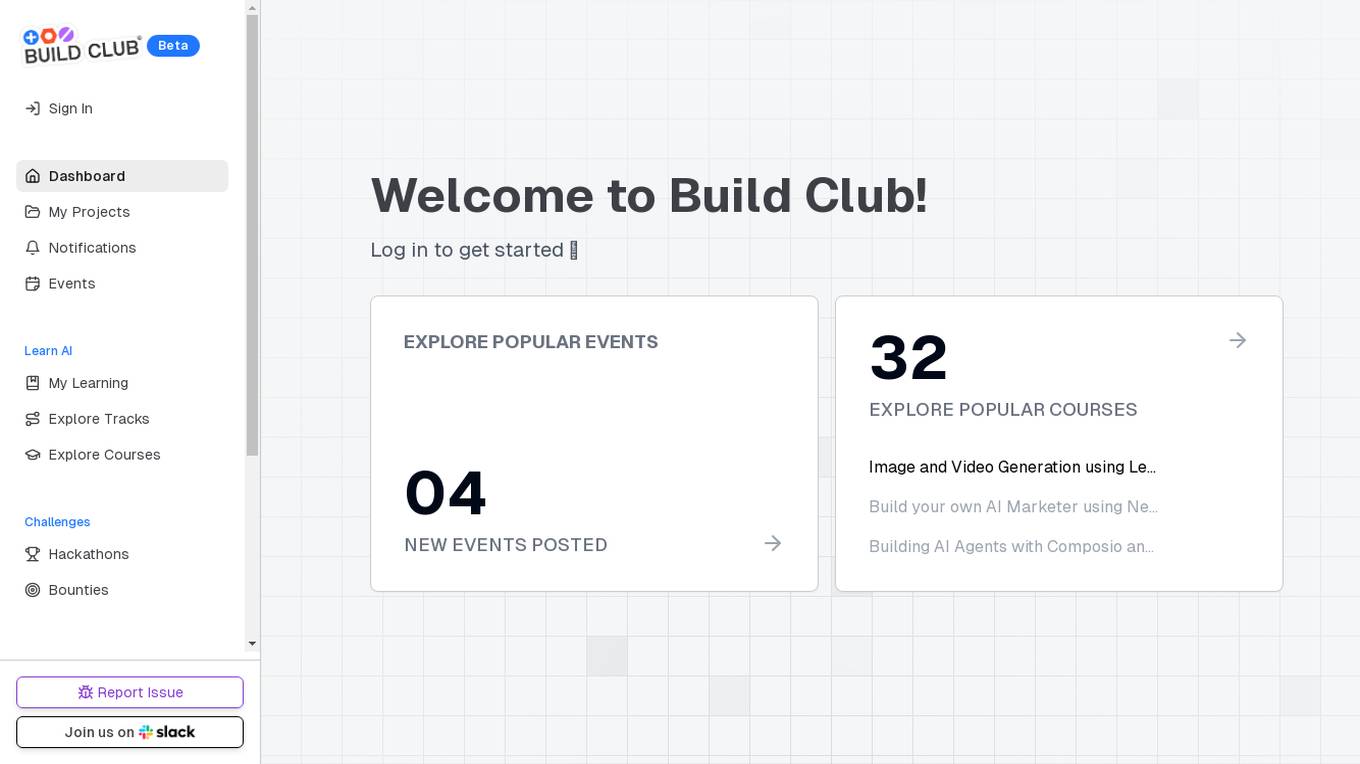
Build Club
Build Club is an AI tool designed to help individuals learn and explore various aspects of artificial intelligence. The platform offers a wide range of courses, challenges, hackathons, and community projects to enhance users' AI skills. Users can build AI models for tasks like image and video generation, AI marketing, and creating AI agents. Build Club aims to create a collaborative learning environment for AI enthusiasts to grow their knowledge and skills in the field of artificial intelligence.
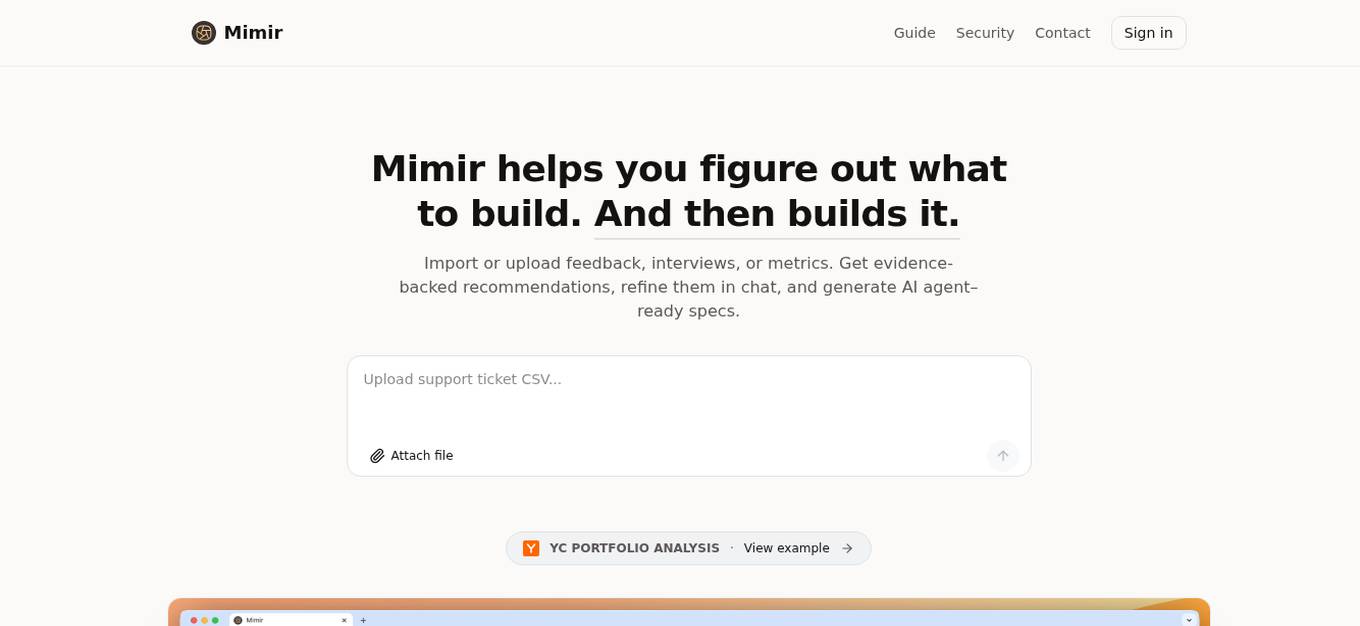
Mimir
Mimir is an AI-native product management tool that helps users figure out what to build next by importing or uploading feedback, interviews, or metrics. It provides evidence-backed recommendations, refines them in chat, and generates AI agent-ready specs. Mimir stands out by creating GitHub issues from recommendations with complete specs and implementation tasks, enabling users to ship features in hours. The tool extracts structured insights, clusters them into themes, and generates prioritized recommendations based on product management best practices. Mimir learns from every interaction, aligning recommendations with the user's business context over time.
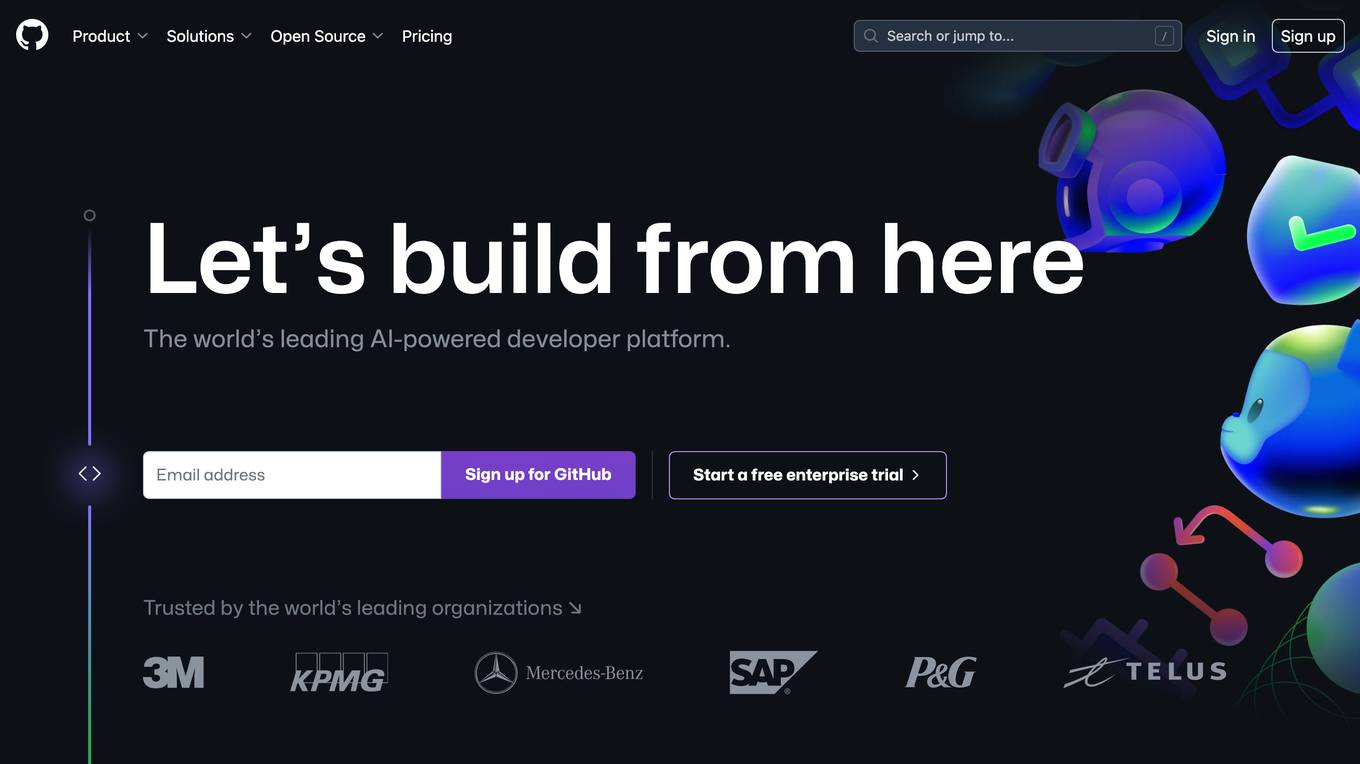
GitHub
GitHub is a collaborative platform that allows users to build and ship software efficiently. GitHub Copilot, an AI-powered tool, helps developers write better code by providing coding assistance, automating workflows, and enhancing security. The platform offers features such as instant dev environments, code review, code search, and collaboration tools. GitHub is widely used by enterprises, small and medium teams, startups, and nonprofits across various industries. It aims to simplify the development process, increase productivity, and improve the overall developer experience.
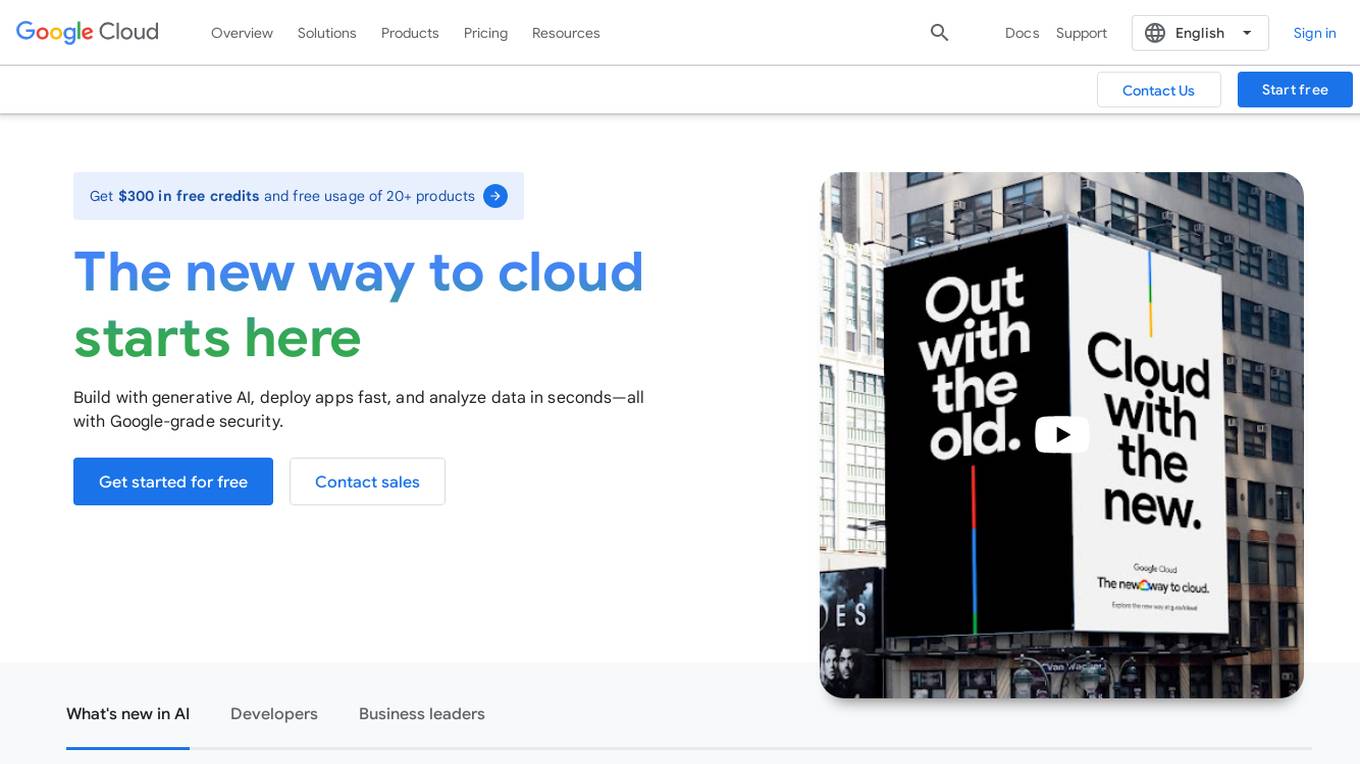
Google Cloud
Google Cloud is a suite of cloud computing services that runs on the same infrastructure as Google. Its services include computing, storage, networking, databases, machine learning, and more. Google Cloud is designed to make it easy for businesses to develop and deploy applications in the cloud. It offers a variety of tools and services to help businesses with everything from building and deploying applications to managing their infrastructure. Google Cloud is also committed to sustainability, and it has a number of programs in place to reduce its environmental impact.
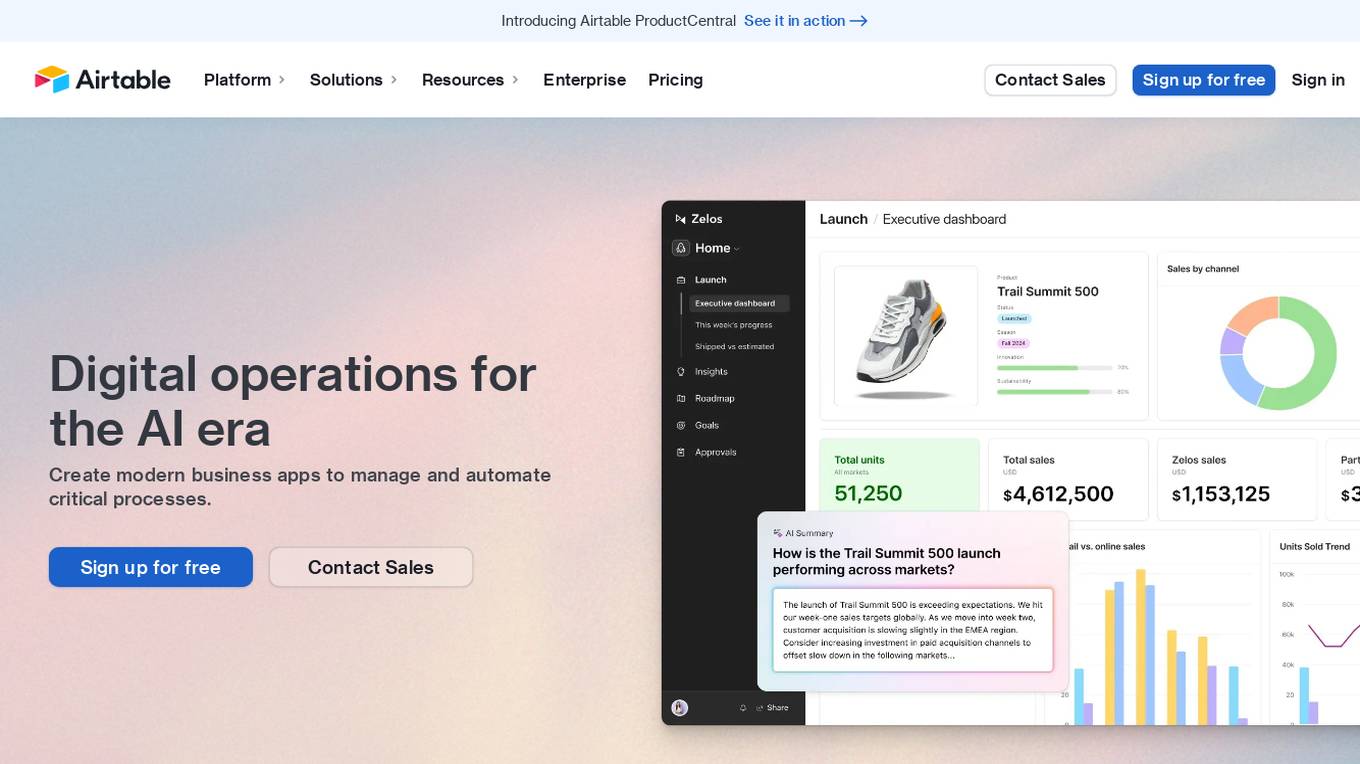
Airtable
Airtable is a next-gen app-building platform that enables teams to create custom business apps without the need for coding. It offers features like AI integration, connected data, automations, interface design, and data visualization. Airtable allows users to manage security, permissions, and data protection at scale. The platform also provides integrations with popular tools like Slack, Google Drive, and Salesforce, along with an extension marketplace for additional templates and apps. Users can streamline workflows, automate processes, and gain insights through reporting and analytics.
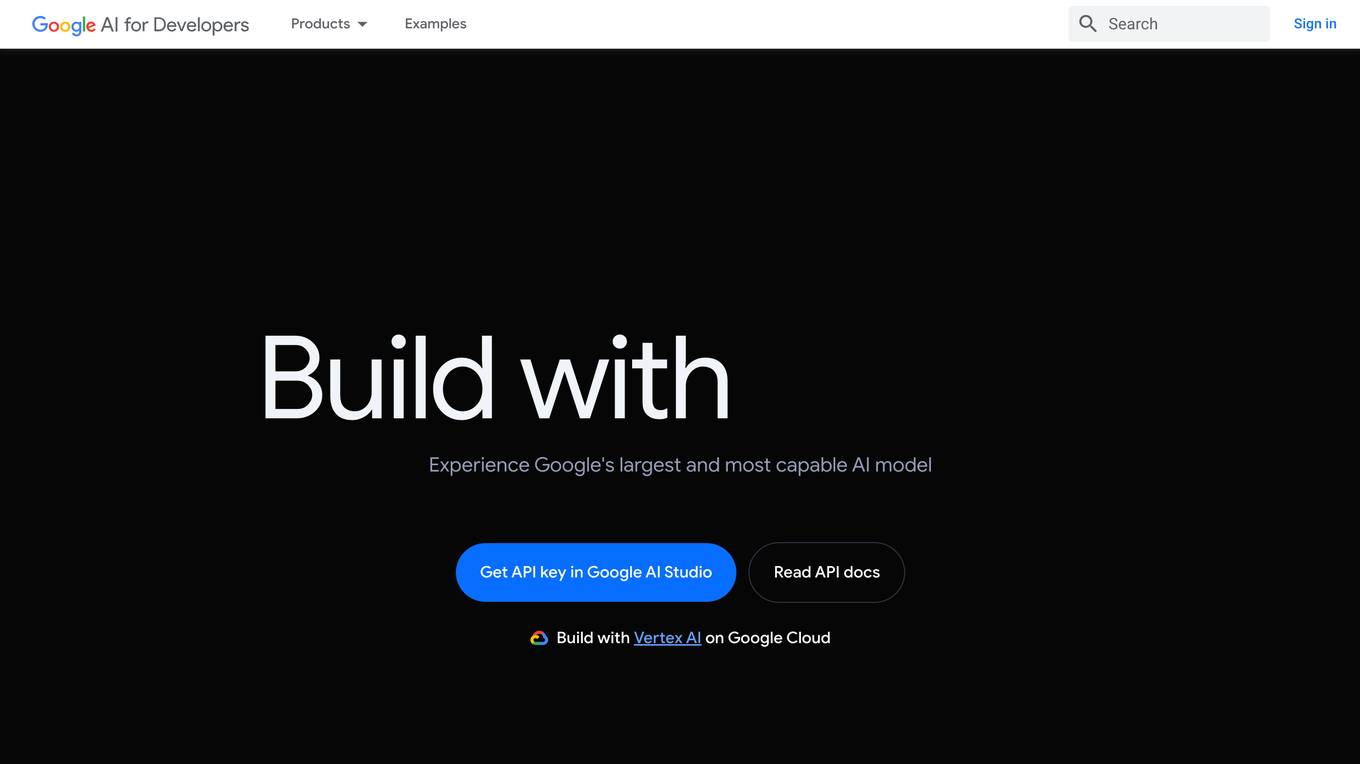
Gemini
Gemini is a large and powerful AI model developed by Google. It is designed to handle a wide variety of text and image reasoning tasks, and it can be used to build a variety of AI-powered applications. Gemini is available in three sizes: Ultra, Pro, and Nano. Ultra is the most capable model, but it is also the most expensive. Pro is the best performing model for a wide variety of tasks, and it is a good value for the price. Nano is the most efficient model, and it is designed for on-device use cases.
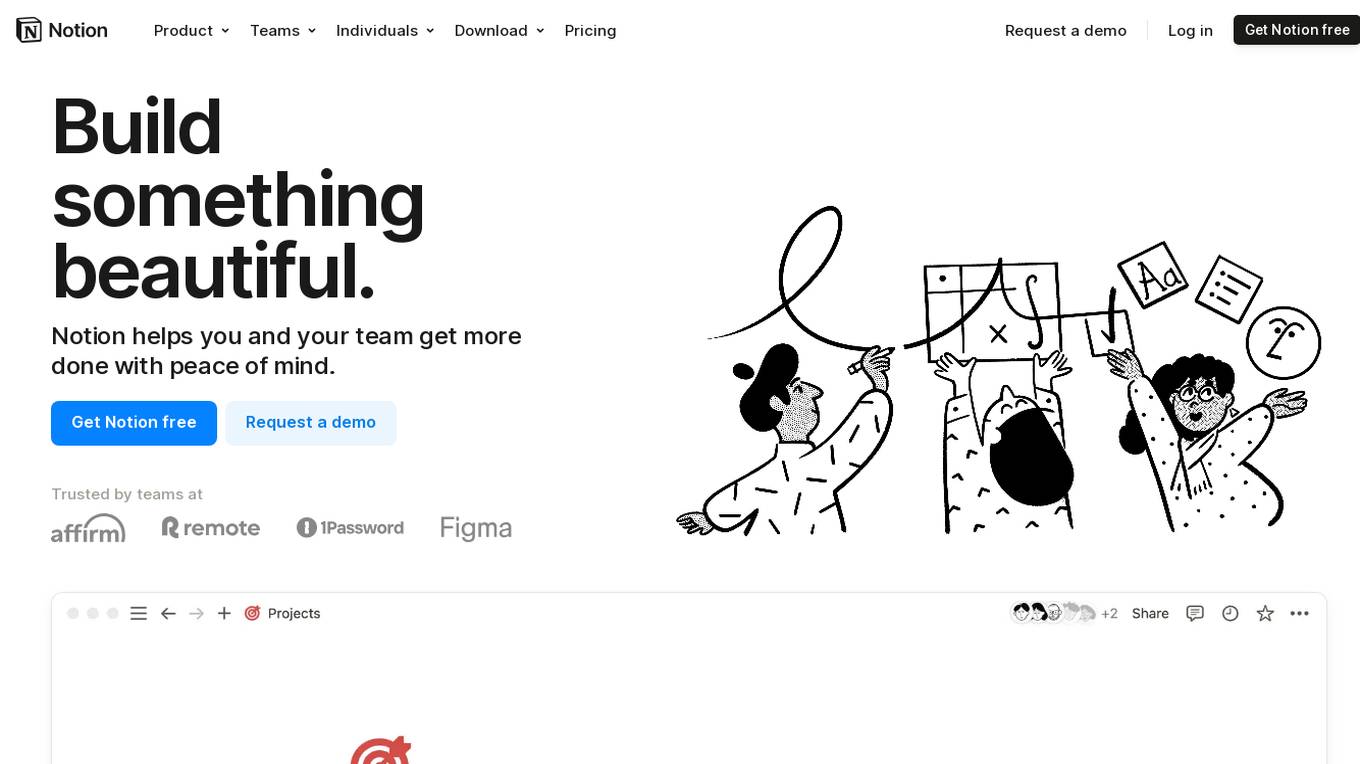
Notion
Notion is an AI-integrated workspace platform that combines wiki, docs, and project management functionalities in one tool. It offers a centralized hub for teams to collaborate, share knowledge, manage projects, and streamline workflows. With AI assistance, users can enhance their productivity by automating tasks, generating content, and finding information quickly. Notion aims to simplify work processes and empower teams to work more efficiently and creatively.
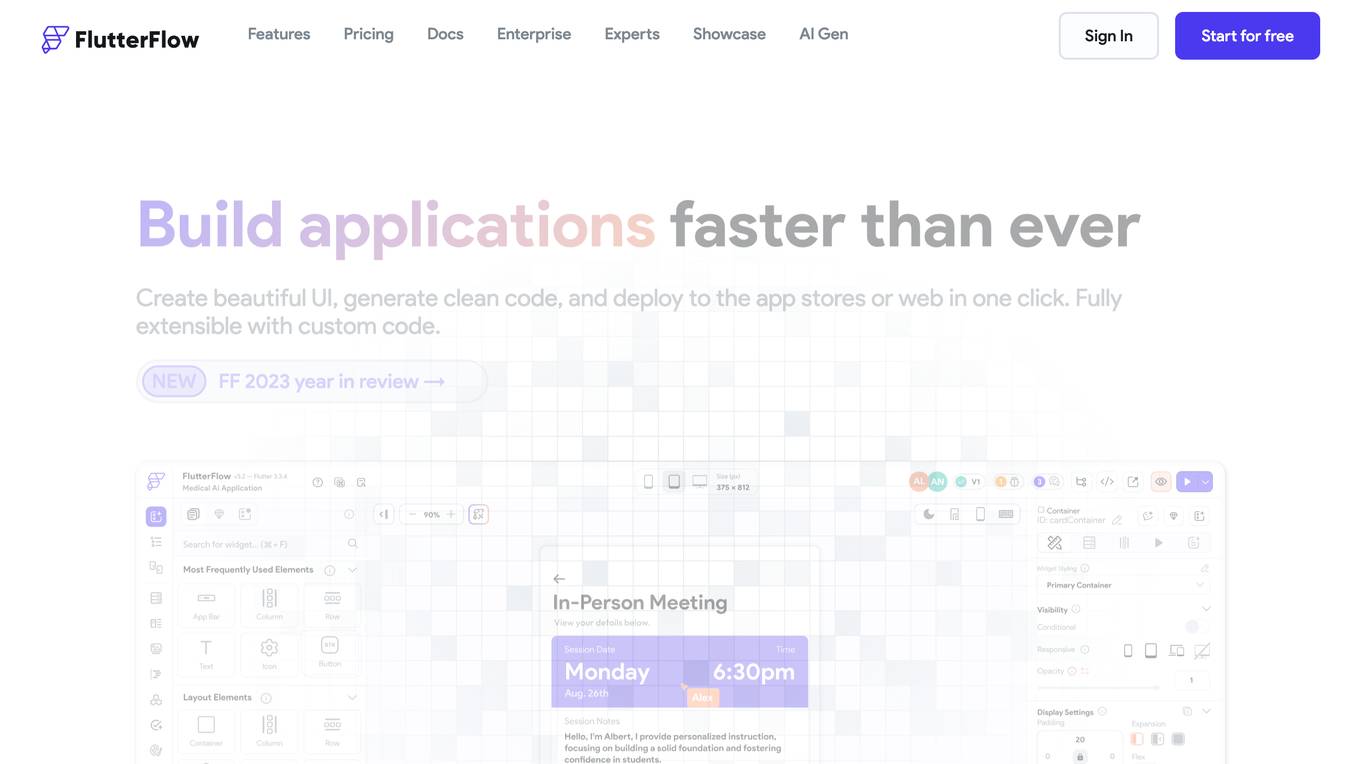
FlutterFlow
FlutterFlow is a low-code development platform that enables users to build cross-platform mobile and web applications without writing code. It provides a visual interface for designing user interfaces, connecting data, and implementing complex logic. FlutterFlow is trusted by users at leading companies around the world and has been used to build a wide range of applications, from simple prototypes to complex enterprise solutions.
0 - Open Source AI Tools
20 - OpenAI Gpts
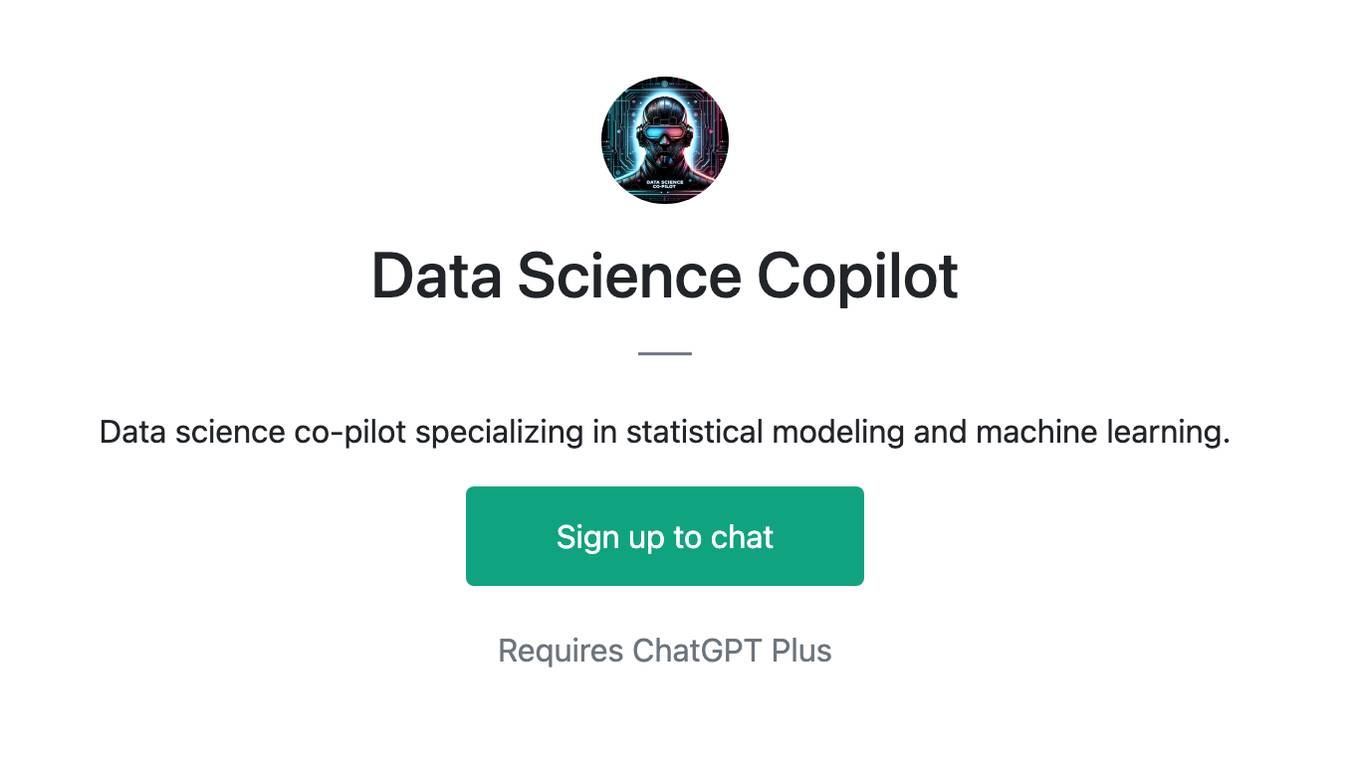
Data Science Copilot
Data science co-pilot specializing in statistical modeling and machine learning.
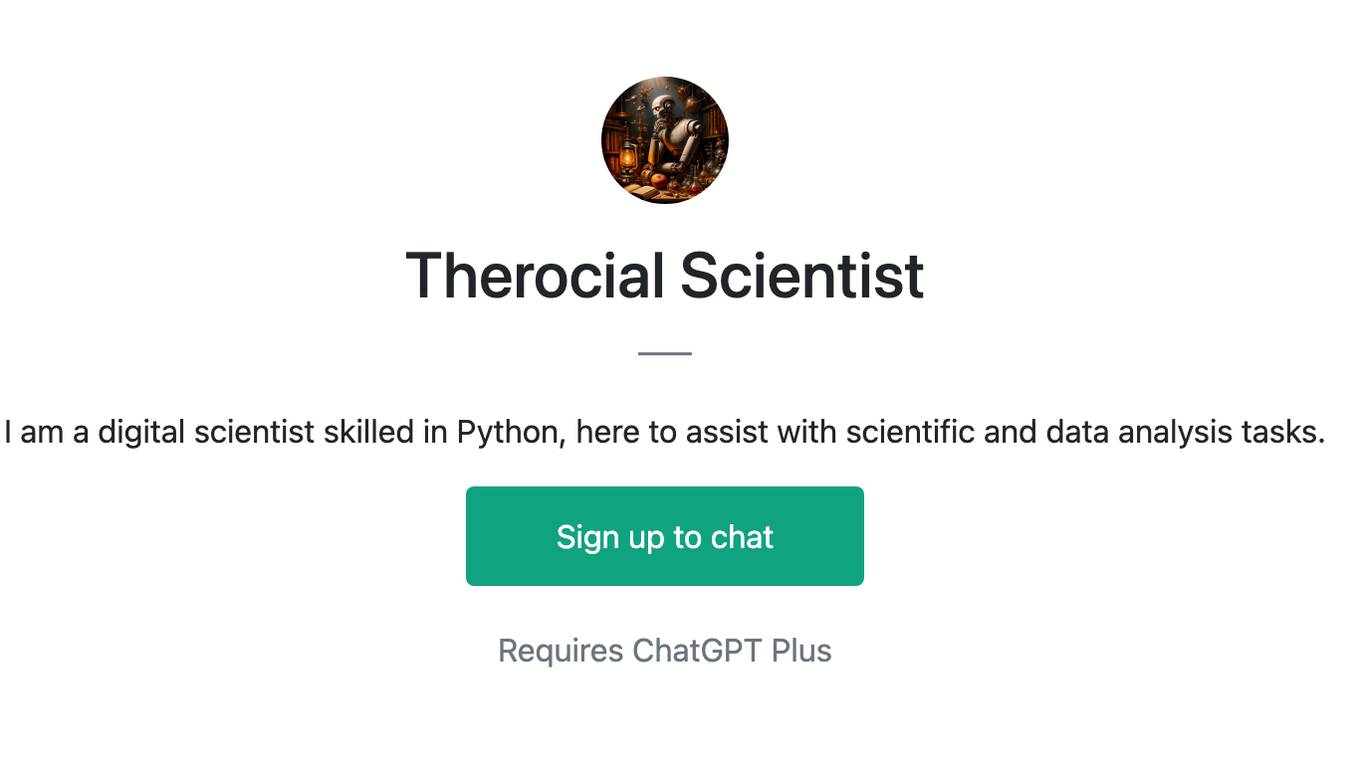
Therocial Scientist
I am a digital scientist skilled in Python, here to assist with scientific and data analysis tasks.

Quant Jiang
"My quantitative, my math specialist. Look at him, you notice anything different about him? Look at his face."
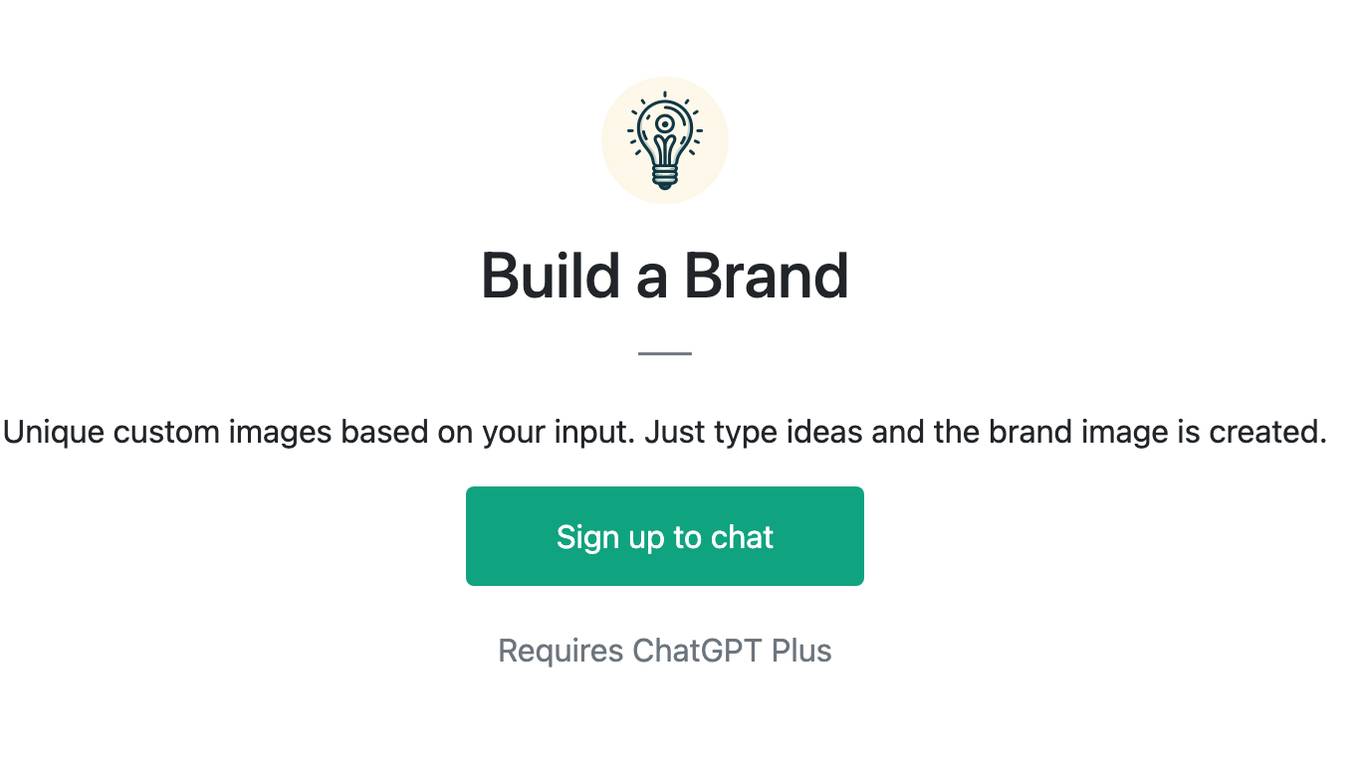
Build a Brand
Unique custom images based on your input. Just type ideas and the brand image is created.
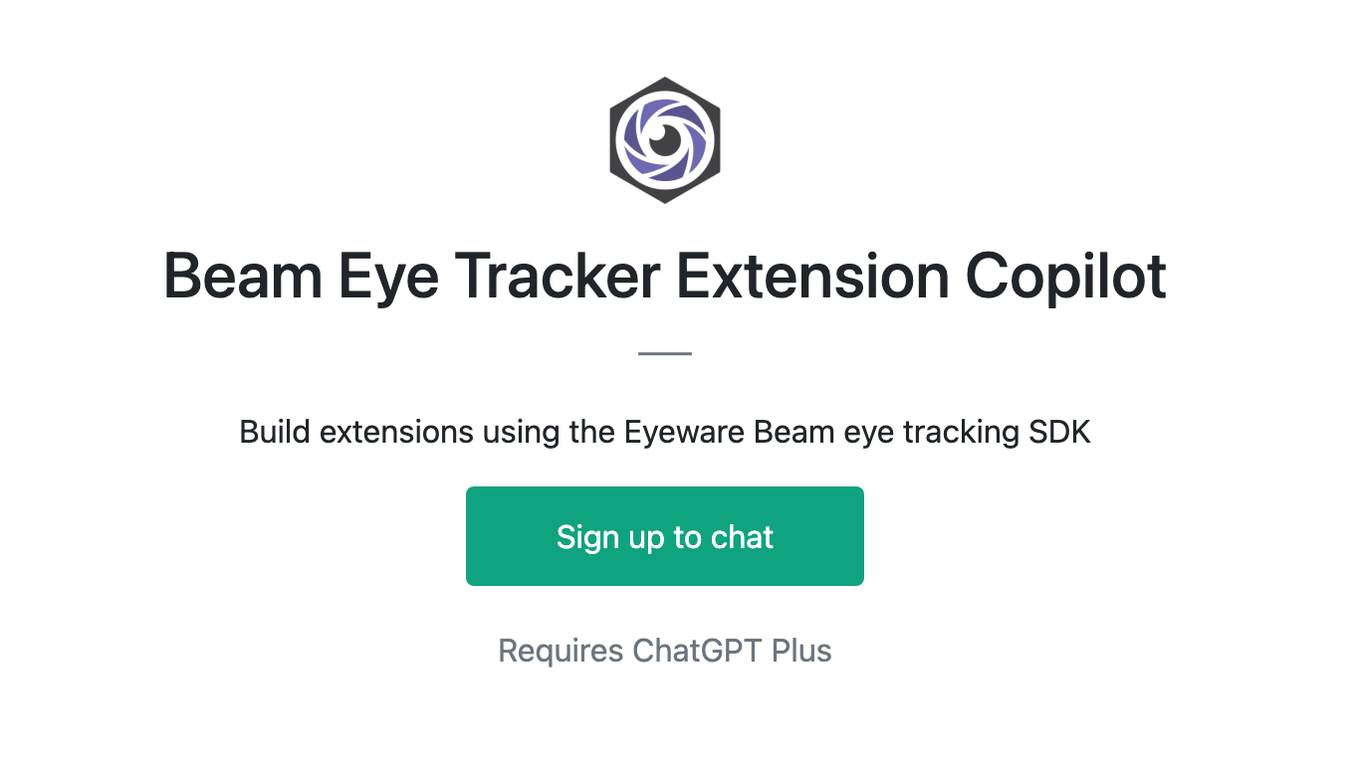
Beam Eye Tracker Extension Copilot
Build extensions using the Eyeware Beam eye tracking SDK

Business Model Canvas Strategist
Business Model Canvas Creator - Build and evaluate your business model

